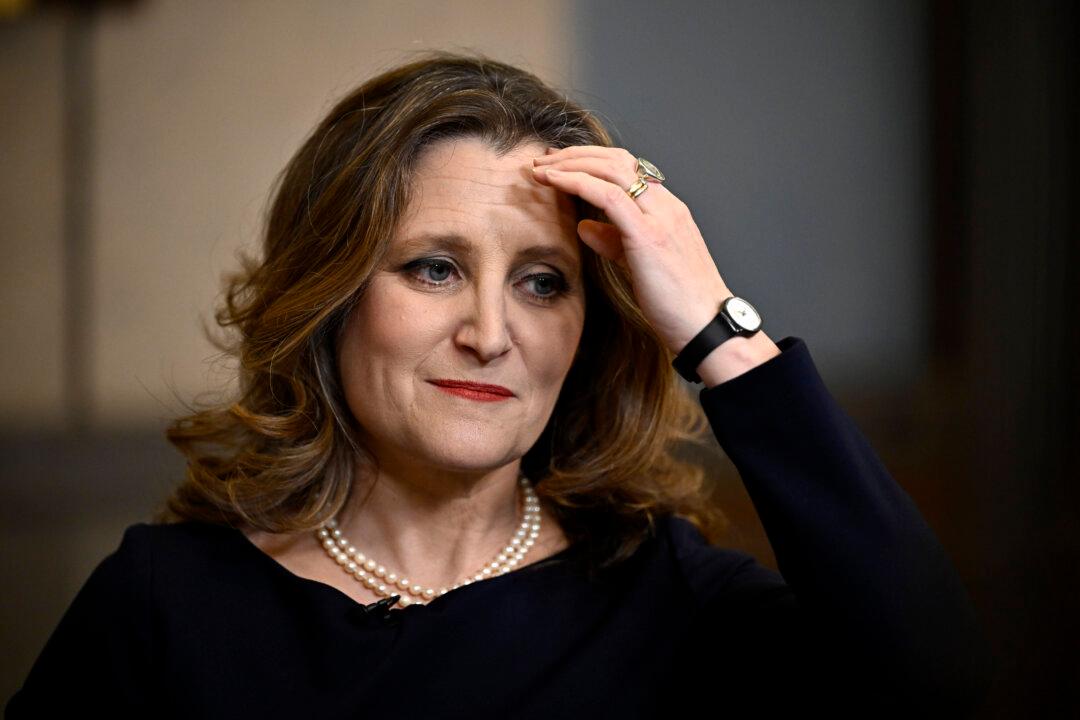Deputy Prime Minister Chrystia Freeland expressed her support for the prime minister when being asked about the carbon tax and potential leadership runs by her and Mark Carney.
Ms. Freeland was asked about Mr. Carney’s testimony in the Senate the day prior as she appeared before the House of Commons finance committee on May 9 to discuss her latest budget bill. Mr. Carney is a former Bank of Canada governor who has not denied being interested in becoming the next Liberal Party leader.





